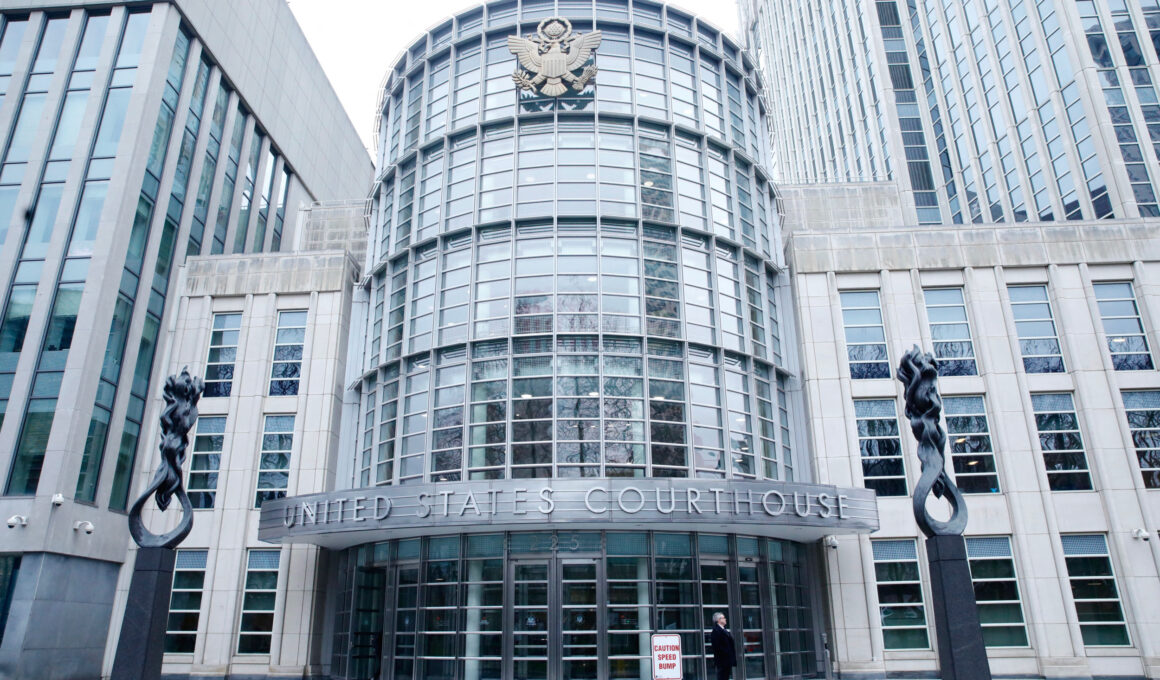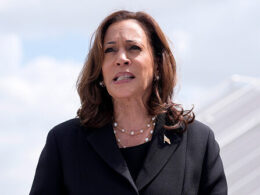A former top Mexican official, Genaro García Luna, allegedly attempted to bribe fellow inmates in an effort to get a new trial in a U.S. drug case, according to a federal judge on Wednesday.
García Luna is a former secretary of public security in Mexico who served under the Felipe Calderón administration between 2006 and 2012. He was convicted last year of accepting bribes to shield drug cartels he was tasked to combat, and his charges include engaging in a continuing criminal enterprise. García Luna, 56, has denied the charges against him and is currently awaiting sentencing.
According to the Associated Press (AP), U.S. District Judge Brian Cogan on Wednesday dismissed García Luna’s request for a retrial in his U.S drug case.
In the ruling, Cogan pointed out allegations that García Luna tried to bribe fellow inmates into making false statements to support his bid for a new trial.
The allegations of bribery came to light earlier this year when prosecutors presented evidence, including handwritten notes from a former cellmate and a covert recording of a conversation with García Luna, the AP reported.
Despite defense claims that the accusations were unfounded and the recording was unclear, Cogan found the evidence credible, calling it “a clear scheme by defendant to obstruct justice through bribery.”
In response, defense attorney César de Castro condemned the ruling and said the court did not address fundamental issues with the prosecution, which he said included claims of false testimony by prosecution witnesses and withholding of potentially exculpatory evidence.
“We are extraordinarily disappointed with the court’s decision,” Castro told the AP, adding that García Luna plans to appeal the ruling.
Newsweek has reached out to the U.S. Attorney’s Office of Eastern New York via email for comment.
Following the initial verdict, defense attorneys submitted a sworn statement from another inmate, who alleged that a prosecution witness had vowed to “screw” García Luna and had communicated with a second government witness using a contraband cellphone, the AP reported. The defense argued that this supported their theory that García Luna was framed by cartel members and corrupt officials seeking leniency.
However, prosecutors countered in a March filing that said the inmate providing the statement had a psychotic disorder and hallucinations. They also reported that government witnesses denied any such communications and claimed that García Luna offered other inmates up to $2 million to make similar false claims, the AP reported.
Additionally, according to the AP, García Luna allegedly sought to persuade an inmate to say he overheard a conversation involving a second government witness about fabricating a bribery claim.
The judge also determined that García Luna’s defense team was unaware of his attempts to influence witness testimonies.
Meanwhile, García Luna was already considered a controversial figure in Mexico due to the staggering violence that stemmed from Calderon’s security policies. During his tenure, the number of casualties oscillated between 60,000 and 90,000 due to a crossfire between Mexican authorities and drug cartels, according to website Aristegui Noticias, citing numbers from human rights watchdogs.
Details of García Luna’s acceptance of bribes during that time were revealed amid the trial of Joaquin “El Chapo” Guzman in 2018.
Jesús “El Rey” Zambada, who is considered a subleader of the Sinaloa cartel, told a Brooklyn court in November 2018 that the Sinaloa cartel and the Beltrán Leyva group had pulled together $50 million in bribe money to García Luna so that they could continue their drug trafficking operations without interference from government officials, according to reports. Meanwhile, other media reports during that time said it was unclear how much of this money was earmarked for García Luna.
The questionable work of García Luna as a top security official had prompted the Enrique Peña Nieto administration to eliminate the secretary of public security, while a decree stated that all the duties and responsibilities from that department be incorporated into the Interior Minister, according to Spanish newspaper El País.
García Luna faces at least 20 years and as much as life in prison at his sentencing on October 9.







